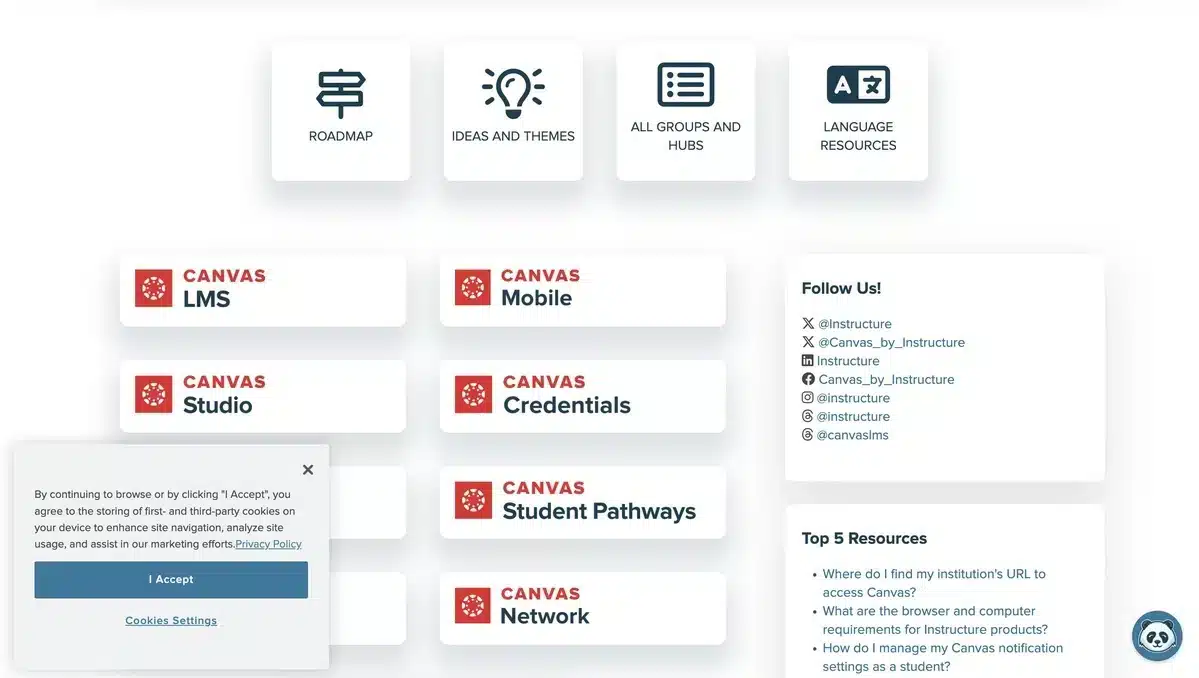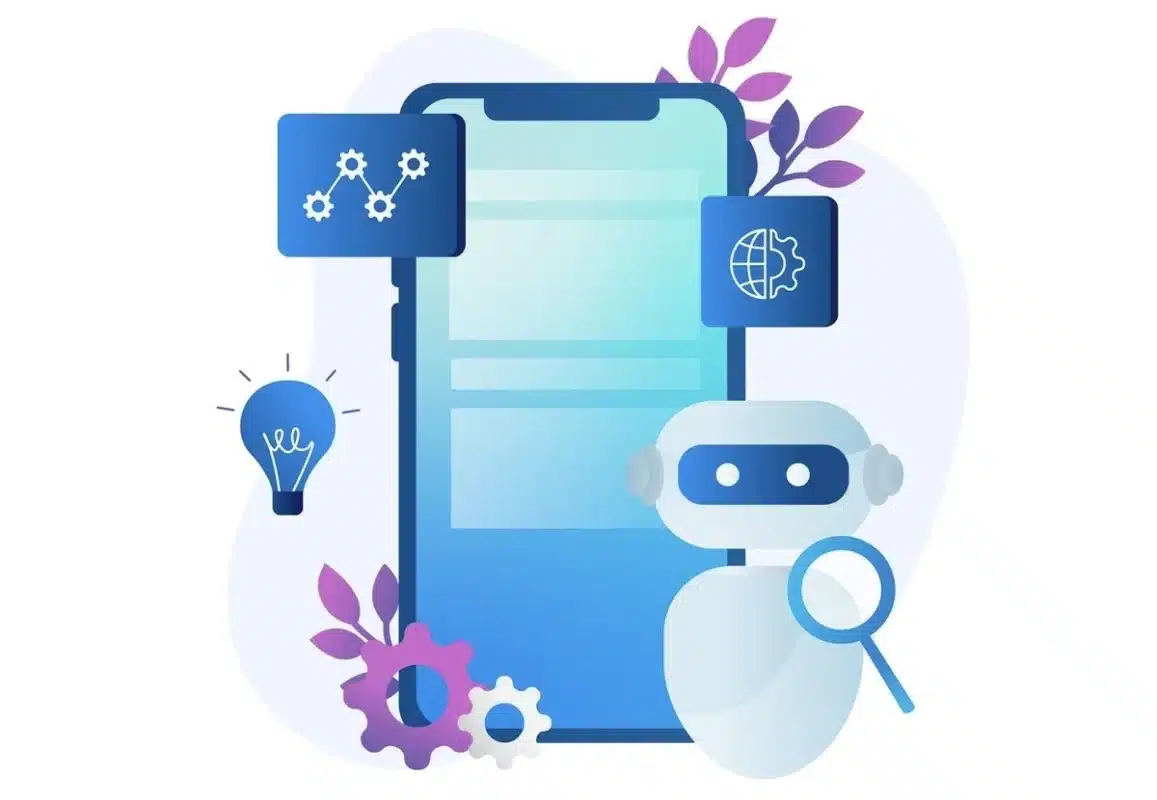Can Canvas Detect ChatGPT? Cracking the Code

In online education, integrating artificial intelligence, like ChatGPT, with platforms such as Canvas has sparked curiosity and raised questions.
One pressing inquiry stands out: Can Canvas detect ChatGPT conversations? This query is significant as it pertains to the potential monitoring capabilities of educational platforms and their interaction with AI technologies.
In this blog post, we begin exploring this intriguing question, shedding light on Canvas’s functionalities and ability to discern interactions with ChatGPT.
Join us as we uncover the details of this topic and consider its effects on the future of online learning.
What is Canvas?

Canvas is a learning management system (LMS) that educational institutions use to facilitate online teaching and learning.
It provides a digital platform where educators can create and manage courses, share learning materials, communicate with students, and assess their progress.
Canvas offers features such as online assignments, discussion boards, quizzes, grading tools, and integration with other educational software.
It is a central hub for course content and communication, enabling students to access materials, submit assignments, participate in discussions, and track their grades from anywhere with an internet connection.
Overall, Canvas simplifies the administration and delivery of online education, making it easier for educators to engage with students and facilitate their learning journey.
Can Canvas Detect ChatGPT?

Many people wonder, “Can Canvas detect ChatGPT?” In reality, Canvas, the online learning platform, cannot detect responses from ChatGPT or other AI models.
Its primary function is to manage courses and facilitate communication between teachers and students.
Unless users provide specific indications, Canvas cannot distinguish between interactions with ChatGPT and those with other sources.
Therefore, Canvas remains unaware of whether ChatGPT is being used unless explicitly specified.
What are the Functions of Canvas?
The functions of Canvas, a learning management system, include:
- Course Management: Canvas allows instructors to create, organize, and manage course materials such as syllabi, lectures, assignments, and quizzes.
- Communication: It provides tools for communication between instructors and students, including announcements, messaging, and discussion boards.
- Assignment Management: Canvas facilitates the creation, submission, grading, and feedback process for assignments, projects, and assessments.
- Collaboration: It enables collaborative work among students through group projects, shared documents, and peer review assignments.
- Assessment: Canvas offers tools for creating and administering quizzes, exams, surveys, and other evaluations, as well as tracking student performance.
- Content Delivery: Instructors can deliver course content through various formats, such as text, multimedia, links, and files, accessible to students anytime and anywhere.
- Grading: Canvas simplifies the grading process with features for grading assignments, providing feedback, and calculating grades.
- Analytics and Reporting: It provides insights into student engagement, performance, and participation through analytics and reporting tools.
- Integration: Canvas integrates with various third-party tools and services, allowing for additional functionalities such as video conferencing, plagiarism detection, and accessibility tools.
Overall, even though Canvas cannot solve your query as “Can Canvas Detect ChatGPT?”, it serves as a comprehensive platform for educators to manage courses, engage with students, deliver content, assess learning, and facilitate collaboration in online and blended learning environments.
How can Educators utilize ChatGPT within Canvas?
Educators can effectively use ChatGPT within Canvas by incorporating it into various aspects of their teaching:
- Personalized Feedback: ChatGPT provides customized feedback on student assignments and discussions. Its natural language processing capabilities allow for detailed and tailored responses, enhancing the learning experience.
- Interactive Quizzes: Create interactive quizzes using ChatGPT-generated questions. This can make assessments more engaging and adaptive to students’ learning needs.
- Discussion Prompts: Generate thought-provoking discussion prompts with ChatGPT to stimulate critical thinking and facilitate meaningful class discussions within Canvas.
- Supplementary Learning Resources: Utilize ChatGPT to generate additional learning resources, such as study guides, lecture summaries, or explanatory texts, to complement course materials and enhance understanding.
- Automated Grading: Implement ChatGPT to automatically grade-specific assignments or assessments, ease the grading process, and provide immediate feedback to students.
- Virtual Teaching Assistant: Integrate ChatGPT as a virtual teaching assistant within Canvas, where it can answer common student inquiries, provide study tips, or offer clarification on course material.
- Creative Writing Exercises: Encourage creative writing exercises by prompting students to collaborate with ChatGPT
Conclusion: Can Canvas Detect ChatGPT
In conclusion, as SafeAssign is rumoured to be a ChatGPT detector, another query, “Can Canvas detect ChatGPT?” remains open-ended.
While Canvas offers an effective platform for managing online learning, it cannot currently detect interactions with ChatGPT or similar AI language models.
However, as technology progresses, there’s potential for advancements in AI detection within educational platforms.
Regardless of the outcome, this discussion highlights the complexities of integrating AI into education and underscores the importance of considering privacy, ethics, and the future of learning.
Moving forward, it’s essential to approach the integration of AI in Canvas or any educational platform thoughtfully, ensuring that academic goals are prioritized while upholding principles of transparency and accountability.
FAQs: Can Canvas Detect ChatGPT
How does Canvas track user activity?
Canvas tracks user activity through various means, such as login records, course participation, assignment submissions, and interactions within the platform.
Are there any concerns about using ChatGPT with Canvas?
There may be concerns regarding academic integrity if ChatGPT is used to generate content for assignments or assessments within Canvas. Users must stick to academic honesty policies and guidelines set forth by their educational institution.
What are the benefits of using ChatGPT in conjunction with Canvas?
Integrating ChatGPT with Canvas can enhance learning experiences by providing personalized feedback, facilitating discussions, and generating supplementary content for educational purposes.
Is there any risk of misuse when using ChatGPT with Canvas?
While ChatGPT can be a valuable tool for educational purposes, there is a risk of misuse, particularly in cases of plagiarism or unethical behaviour. Educators must provide clear guidelines and oversight when incorporating ChatGPT into their teaching methods.
Are there alternatives to ChatGPT for educational purposes?
Yes, there are alternative tools and platforms available for educators, such as other AI language models, educational software, and learning management systems with built-in features for content creation and assessment.

Kartika Musle
A Tech enthusiast and skilled wordsmith. Explore the digital world with insightful content and unlock the latest in tech through my vision.

Leave a Reply